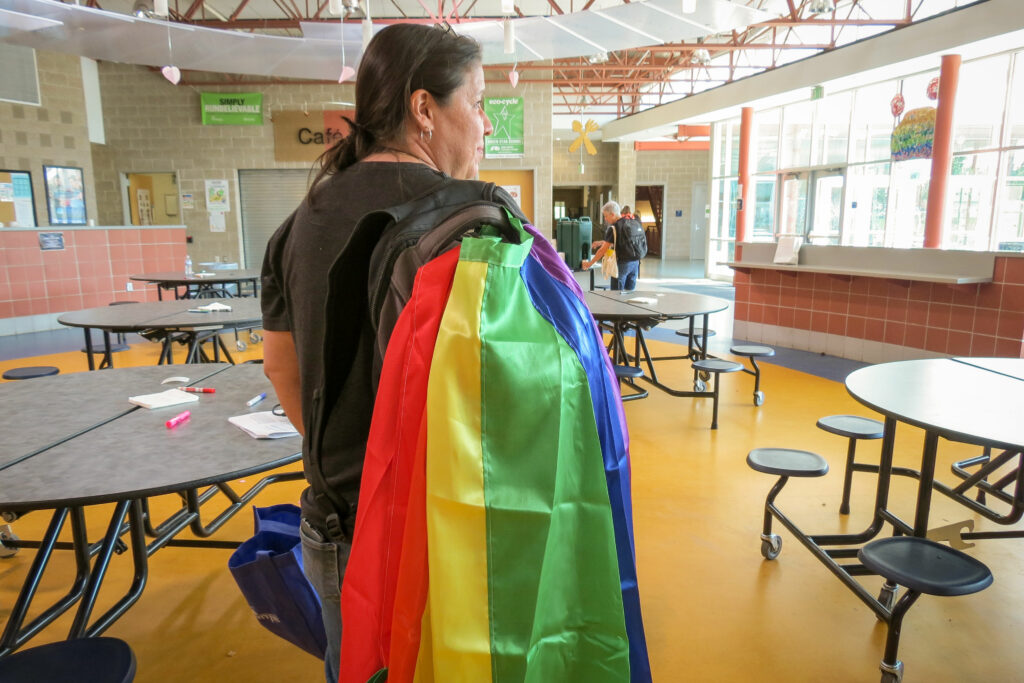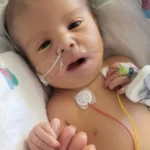Blog Post
Students are being groomed by teachers to embrace LGBT ‘glitter families’ in place of parents
By Jonathon Van Maren
Earlier this month, a photo of a sign posted at a Wisconsin high school went viral. Showing a Mama Bear surrounded by three cubs—one rainbow-colored, one striped like the transgender flag, and the third colored blue and shades of purple (if this is another alphabet soup identity, I can’t identify it)—it read: “If your parents aren’t accepting of your identity, I’m your mom now #freemomhugs.”
The photo was shared on Twitter by Parents Defending Education (a “national grassroots non-profit empowering parents to advocate for classrooms that educate, not indoctrinate”) and by several social conservative activists on Facebook. Teri Piper Thompson of the Eau Claire Area School District confirmed to Newsweek that the sign had, in fact, been hung up at North High School but had been taken down.
Apparently, this sign had been hung up by a number of teachers. The context of this is particularly disturbing. According to Newsweek, the school district recently had equity professional development training which included this: “Late last month, teachers attended a staff development day in which content included a slide with direction to teachers that ‘…parents are not entitled to know their kids’ identities. That knowledge must be earned.’”
LGBT activists will claim that this training is necessary, and that kids identifying as LGBT face genuine danger from their own families. Government employees, in other words, care more about these children than their parents do, and as such those employees must be both instructed and enabled to protect children from their families. Combine this with omnipresent LGBT sex education beginning in the earliest grades and increasingly presenting children the option of changing genders, and the results are inevitable.
I have received many, many emails over the past several years from parents who discovered, months later, that their child had begun to identify as a different gender at school and that this had been hidden from them. The child would pick a different name and different pronouns for school; school staff would assist the child; parents and family members would be cut out. The child would generally be given trans-affirmative counseling and ushered into the LGBT club. When stunned parents discover what is going on and protest—often because their child suffers from autism or another disorder that is relevant to the dysphoria—they can be promptly smeared by the school as transphobes.
Abigail Shrier examines how families have been ruptured by the transgender movement in detail in her book Irreversible Damage: The Transgender Craze Seducing Our Daughters. Children are encouraged to reject their natural families in favor of “glitter families,” consisting only of those who affirm every impulse. One mother was labeled “unsafe” simply for opposing her young daughter getting a double mastectomy of health breasts. Another who lost three children to the transgender cult wondered if she’d ever hear her daughter’s voice again. Another mom mourned: “My once-beautiful daughter is now bearded, homeless, and sterilized.”
One mom spoke for many when she penned an open letter titled, “When the trans movement discards my daughter, I’ll be here for her.” Here’s how that letter ended:
Beyond her physical health, I know being transgender will not solve the aches of her heart. The suicide rate for transgender people is much higher after transition than before.
My daughter, like a lot of bright girls, experienced challenges socially. She was often left out and rejected by other kids. She was sensitive, and it hurt.
I’m sure she believes her new identity will heal those wounds. I’m also sure it will not. When it doesn’t, what will she be left with? I want to believe that she will be alright. I’m here, waiting for her. I pray she knows I’m still here, waiting, for as long as it takes.








